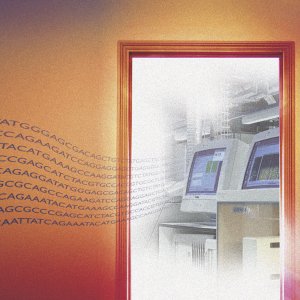International collaboration to boost genome research in developing countries
 The Wellcome Trust, whose funding has been crucial to progress in genome sequencing, is collaborating with the Institut Pasteur to share its expertise and knowledge with developing countries. The initiative is aimed at providing training in the fast-moving arena of genome analysis.
The Wellcome Trust, whose funding has been crucial to progress in genome sequencing, is collaborating with the Institut Pasteur to share its expertise and knowledge with developing countries. The initiative is aimed at providing training in the fast-moving arena of genome analysis.
In a joint collaboration with the Institut Pasteur and Institut de Higiene in Montevideo, Uruguay, members of the Wellcome Trust Sanger Institute Pathogen Sequencing Unit, the Institut Pasteur in Paris and Montevideo and the National Scientific Computational Lab in Brazil will run a ten-day course beginning on 5 June which aims to give postgraduate students and postdoctoral scientists an introduction to bioinformatics tools and genomic analysis. Researchers at the Wellcome Trust Sanger Institute are at the forefront of these research areas and are using the techniques to study the genomes of the world’s major killers such as malaria, typhoid fever and the superbug MRSA.
The course is part of the Wellcome Trust Advanced Courses, which usually take place at the Wellcome Trust Sanger Institute near Cambridge. By offering the courses for free to countries in the developing world, the Trust aims to build on the local institutions’ strong scientific knowledge and front-line clinical research in order to offer their researchers up-to-date training in the fast-moving arena of analysis and provides the mechanisms to keep up with new developments.
In addition to training researchers from all over South America at the course, the Wellcome Trust have donated high-power computers, essential for analysing the genomes, to the Instituto de Higiene, Uruguay. These computers form part of a long-term collaboration between the Sanger Institute and the Instituto de Higiene of the School of Medicine in Uruguay. In return The Instituto de Higiene has set up a permanent training room to house these computers that will act as a centre for Wellcome Trust advances courses in South America.
The Sanger Institute’s Informatics Systems Group contributed the technical expertise to integrate open-source software into a flexible, self-contained training room straightforward for local staff to administer. This is the first time the Sanger Institute has deployed Ubuntu Linux whose philosophy of bringing the benefits of software technology to all parts of the globe echoes the Wellcome Trust’s aim of sharing scientific knowledge with developing countries.
In a lead week before the courses, Andrew Flint from the Sanger Institute has been working with Assistant Professor Leonardo Matteo from the Instituto de Higiene, who will be administering the room. The Instituto de Higiene has put in a great effort into setting up the facilities to host the courses: they see this as a tremendous opportunity to help their researchers develop new skills and the future courses they will host will be a continuing benefit.
The first week of the course will be taught by members of the Institut Pasteur in Paris and Montevideo and the National Scientific Computational Lab in Brazil. This will provide an introduction into genomics, covering how and where to obtain genome data, sequence assembly and a basic introduction to sequence annotation.
The second week of the course will build on this knowledge and will be taught by members of the Wellcome Trust Sanger Institute Pathogen Sequencing Unit, focusing on pathogens of the two types of cells: prokaryotic cells and eukaryotic cells. It will also provide a firm grounding in the use of the genome analysis software (Artemis and ACT) developed by the Unit. Artemis allows the user to analyse sequence data generated in-house as well as being able to upload and re-analyse data taken from databases. ACT allows direct, and interactive, comparisons of multiple genomes/sequences, enabling the user to exploit the growing number of genomes from closely related organisms to look at genome architecture and evolution.
In addition to training researchers from all over South America at the course, the Wellcome Trust will be donating high-power computers, essential for analysing the genomes, to the Institut de Higiene, Uruguay, to set up a permanent training room. Sanger Institute instructors will return there in December to hold a workshop on analysing the human genome.
Following the workshops in Uruguay, the Wellcome Trust plans further workshops and laboratory-based courses in other developing countries, where it has Major Overseas Programmes studying malaria and other important diseases of the tropics. These include Kenya, Thailand, Malawi and Vietnam.
More information
Selected websites
The Wellcome Trust Sanger Institute
The Wellcome Trust Sanger Institute, which receives the majority of its funding from the Wellcome Trust, was founded in 1992. The Institute is responsible for the completion of the sequence of approximately one-third of the human genome as well as genomes of model organisms and more than 90 pathogen genomes. In October 2006, new funding was awarded by the Wellcome Trust to exploit the wealth of genome data now available to answer important questions about health and disease.
The Wellcome Trust and Its Founder
The Wellcome Trust is the most diverse biomedical research charity in the world, spending about £450 million every year both in the UK and internationally to support and promote research that will improve the health of humans and animals. The Trust was established under the will of Sir Henry Wellcome, and is funded from a private endowment, which is managed with long-term stability and growth in mind.


